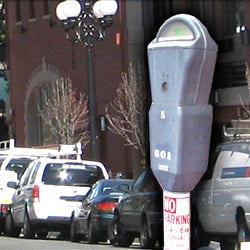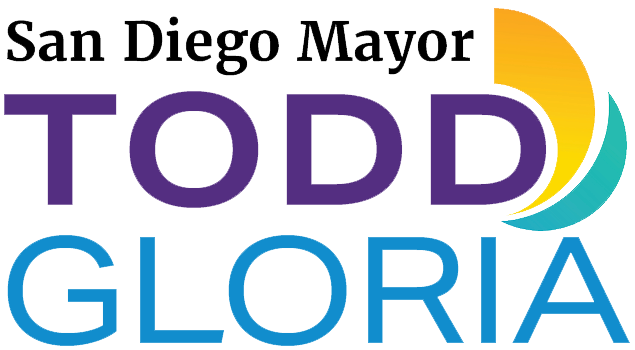Mayor Gloria Overhauls Outreach to Homeless San Diegans
GLORIAS NEW, DATA-DRIVEN APPROACH TO HOMELESS OUTREACH PRIORITIZES INDIVIDUAL NEEDS, FOCUSED ON HOUSING
FOR IMMEDIATE RELEASE
Wednesday, March 10, 2021
CONTACT: MayorPress@sandiego.gov
SAN DIEGO Following through on his vow to change the status quo on the Citys response to homelessness, Mayor Todd Gloria today announced a new approach to establishing relationships with hard-to-reach unsheltered San Diegans to put them on a path toward permanent homes.
Joined at Ocean Beach Recreation Center by City Council President Dr. Jennifer Campbell, San Diego Housing Commission President and CEO Richard C. Gentry, Regional Task Force on the Homeless CEO Tamera Kohler and Jonathan Castillo, chief regional officer of PATH (People Assisting the Homeless), Mayor Gloria highlighted the Citys Coordinated Street Outreach Program, which uses trained social workers and peer specialists to connect unsheltered residents with housing and supportive services.
"For too long, the City has not had enough outreach workers in the field and has not given them the tools they need to build trust and be successful in connecting those living on the streets to housing and services. That changes today, said Mayor Gloria. Our new outreach program puts compassion front and center of how San Diego confronts homelessness.
The Coordinated Street Outreach Program, administered by the San Diego Housing Commission, incorporates nationally recognized best practices to shift the focus of the Citys homelessness outreach efforts. It employs a neighborhood-based, person-centered approach to meeting the unique needs of San Diegos unsheltered population. Its aligned with the principles of the successful housing-first strategy to ending chronic homelessness.
Meaningful outreach in our beach communities has been a missing piece to our homeless strategy, said Council President Campbell. By putting people on the ground, building relationships every day, we can make a meaningful impact on this crisis.
This program focuses resources toward neighborhoods highly impacted by homelessness and helps connect those in greatest need to permanent and longer-term housing opportunities, said SDHC President & CEO Gentry, who also serves on the Leadership Council for the Citys Community Action Plan on Homelessness. With this program, Mayor Gloria and the City Council are advancing the Citys strategy to address homelessness through a client-centered, system-based approach.
Operated by PATH, the program comprises two distinct and complementary sets of teams. One is proactive and the other is reactive, and they work in concert.
The Mobile Homelessness Response Teams, trained in crisis intervention, embeds outreach workers in neighborhoods throughout the city with higher concentrations of people experiencing unsheltered homelessness. These teams will also work to locate and engage with people the Regional Task Force on the Homeless has identified as most vulnerable and prioritized for resources such as supportive housing. These skilled outreach teams will provide ongoing, intensive case management aimed at breaking down barriers and connecting clients to services and permanent housing.
The Rapid Response Team will focus on areas of high concentration and respond to community referrals across the city, providing immediate intervention and problem-solving activities. They will also work to improve the individuals sense of safety and help them meet their basic needs, connecting them to ongoing case management through the Mobile Homelessness Response team(s).
As one of the largest homeless service providers in the state and one of the most impactful providers in San Diego, PATH is excited to expand our successful outreach model citywide, said PATHs Castillo. PATHs coordinated street outreach is trauma-informed, highly person-centered, and focused on Housing First. Our specialists focus on building relationships, working with the community, and finding individualized solutions to ending a persons episode of homelessness.
The PATH program employs 18 people, including two team leaders (one for each team), approximately 12 outreach specialists (approximately six for each team), and four peer support specialists.
To coordinate outreach efforts citywide, the Housing Commission has worked with PATH and additional City-funded outreach resources, such as outreach staff from programs that Father Joes Villages and Alpha Project operate and the Downtown San Diego Partnership, to identify how to best allocate resources in areas across the city with high needs. This has included identifying areas for neighborhood-based outreach assignments.
In addition, intakes into shelters are centralized and coordinated through Housing Commission staff. This identifies shelter-bed availability on a daily basis to serve people in need and help staff connect people experiencing unsheltered homelessness to the most appropriate available bed to meet their needs as quickly as possible.
This coordinated approach follows the new outreach policies and standards developed by the RTFH for the San Diego region, said Regional Task Force on the Homeless CEO Kohler, By putting these policies into practice in Ocean Beach, they will serve as a model for the other communities to follow. Building those relationships and focusing on the individual and their specific needs is the way outreach should be done.
###
























